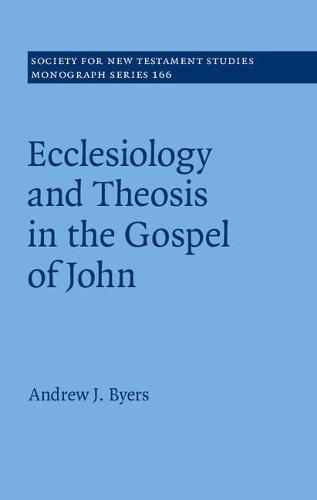Readings Newsletter
Become a Readings Member to make your shopping experience even easier.
Sign in or sign up for free!
You’re not far away from qualifying for FREE standard shipping within Australia
You’ve qualified for FREE standard shipping within Australia
The cart is loading…






For the author of the fourth Gospel, there is neither a Christless church nor a churchless Christ. Though John’s Gospel has been widely understood as ambivalent toward the idea of ‘church’, Andrew Byers argues that ecclesiology is as central a Johannine concern as Christology. Rather than focusing on the community behind the text, John’s Gospel directs attention to the vision of community prescribed within the text, which is presented as a ‘narrative ecclesiology’ by which the concept of ‘church’ gradually unfolds throughout the Gospel’s sequence. The theme of oneness functions within this script and draws on the theological language of the Shema, a centerpiece of early Jewish theology and social identity. To be ‘one’ with this ‘one God’ and his ‘one Shepherd’ involves the believers’ corporate participation within the divine family. Such participation requires an ontological transformation that warrants an ecclesial identity expressed by the bold assertion found in Jesus’ citation of Psalm 82: ‘you are gods’.
$9.00 standard shipping within Australia
FREE standard shipping within Australia for orders over $100.00
Express & International shipping calculated at checkout
For the author of the fourth Gospel, there is neither a Christless church nor a churchless Christ. Though John’s Gospel has been widely understood as ambivalent toward the idea of ‘church’, Andrew Byers argues that ecclesiology is as central a Johannine concern as Christology. Rather than focusing on the community behind the text, John’s Gospel directs attention to the vision of community prescribed within the text, which is presented as a ‘narrative ecclesiology’ by which the concept of ‘church’ gradually unfolds throughout the Gospel’s sequence. The theme of oneness functions within this script and draws on the theological language of the Shema, a centerpiece of early Jewish theology and social identity. To be ‘one’ with this ‘one God’ and his ‘one Shepherd’ involves the believers’ corporate participation within the divine family. Such participation requires an ontological transformation that warrants an ecclesial identity expressed by the bold assertion found in Jesus’ citation of Psalm 82: ‘you are gods’.